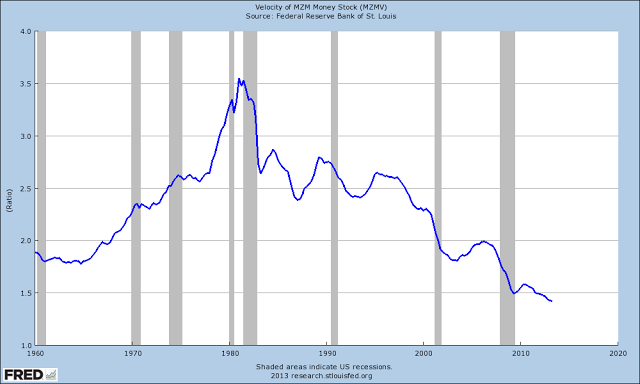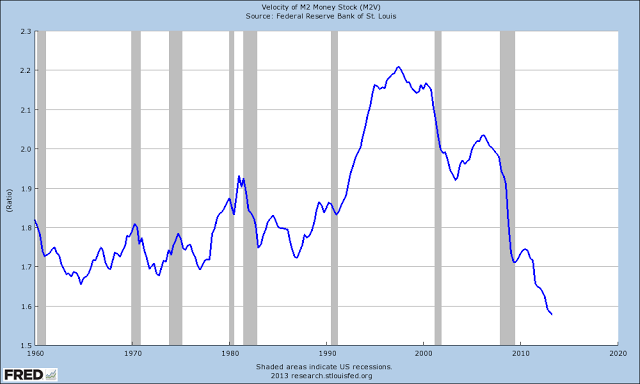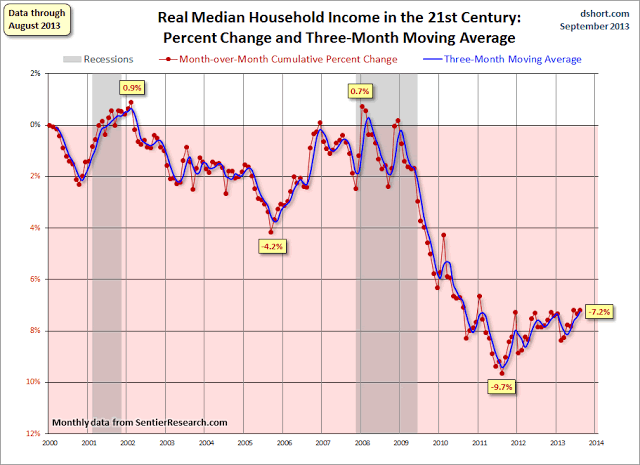This article appeared at The Daily Beast on
Tuesday, October 1, 2013.
Read it there.
It’s a telling coincidence that the latest scandalous revelation
about the National Security Agency (NSA) is hitting the front pages
just as the enrollment period specified by the Affordable Care Act
(ACA, a.k.a. Obamacare) is getting started.
Each of these things underscores different but related aspects
of the virtually unlimited state that has ruined the peaceful
slumber of libertarian-minded Americans for decades. Whether we’re
talking about surveilling citizens without any sort of serious
legal oversight or forcing them to participate in economic activity
in the name of health care
über alles, the answer
always seems to favor the growth and power of the state to control
more and more aspects of our lives. Is it any wonder that a
record-high percentage of Americans think the federal
government
is
too powerful?
In an explosive story,
The New York
Times detailed
the ways in which the NSA, which was originally supposed
to spy on communications among foreign agents and provide
intelligence on threats posed by noncitizen actors and governments,
is increasingly focused on domestic activities. Since 2010,
according to an NSA memo obtained by the
Times, “The
agency was authorized [by officials in the Obama administration] to
conduct ‘large-scale graph analysis on very large sets of
communications metadata without having to check foreignness’ of
every e-mail address, phone number or other identifier.”
Through a process known as “contact chaining,” the NSA is able
to suck up all sorts of email addresses, phone numbers,
social-media-network information, and more without regard to the
physical location or citizenship of each data point. The agency,
reports the
Times, then “enriches” that metadata
“with material from public, commercial and other sources, including
bank codes, insurance information, Facebook profiles, passenger
manifests, voter registration rolls and GPS location information,”
and more. The result, as George Washington University law professor
Orin Kerr puts it, is “the digital equivalent of tailing a
suspect.”
The only restriction on the practice appears to be that the NSA
must make a claim that their data-gathering serves a foreign-policy
justification. Which is never a problem for the agency since, as a
spokesperson told the
Times, “All of NSA’s work
has a foreign intelligence purpose.” While it’s clear that the
contact chaining results in vast webs of information that rope in
Americans completely uninvolved in terrorism, the NSA refuses to
divulge any relevant numbers or incidents.
The NSA originally sought such unrestricted use of metadata and
other information involving Americans back in 1999 but was rebuffed
due to concerns that it was not legal under the Foreign
Intelligence Surveillance Act (FISA), which governs the agency.
Legal opinions within presidential administrations—and after the
9/11 attacks—change, though, and there’s some indirect evidence
that the NSA may have engaged in contact chaining during the Bush
years. Despite his stated interest in protecting civil liberties,
Barack Obama
has
disappointed even his staunchest defenders when it comes
to constitutional limits on executive power and the surveillance
state. Indeed, he has upped the ante from the Bush administration
by claiming not simply the right to hold U.S. citizens indefinitely
without charging them but the right to unilaterally kill them.
The one thing we know from past experience is that the NSA has
consistently abused its powers. During the Vietnam War, for
instance, the agency routinely intercepted communications outside
its legal purview and ran
an
illegal operation known as “Minaret” that spied on
anti-war figures ranging from boxer Muhammad Ali to syndicated
humorist Art Buchwald to Sen. Frank Church (D-ID). The latter would
chair hearings in the 1970s exposing massive illegal and improper
actions by the NSA, FBI, and CIA, giving rise to FISA, which was
passed in 1978. In 2008,
ABC
News reported on NSA operatives listening in on and
sharing recordings of phone-sex calls between U.S. troops and their
spouses in the States and routinely listening in on Red Cross and
other relief workers as well.
The legal justification for the NSA’s actions, according to
the
Times, is the 1979 Supreme Court ruling that
found “no expectation of privacy about what numbers they had
called.” A more recent yet equally unfortunate Supreme Court
decision—the 2012 one upholding President Obama’s
health-care-reform plan—is the reason that the Obamacare exchanges
are theoretically going to be up and running come October 1
(
pay
no attention to the massive and mounting delays with the
program).
The clearest argument against Obamacare was always the
specifically libertarian one against the individual mandate, or the
idea that the government could force you not only to follow certain
rules
if you engaged in commercial or economic
activity but that it could
force you to engage
in commercial or economic activity in the first place.
Like most federal laws dealing with powers specifically
enumerated in the Constitution, the legislative reasoning behind
the mandate is derived from the commerce clause, which gives
Congress the right to “regulate commerce ... among the several
states.” Once interpreted by legislators and courts alike in a
narrow sense, at least since the 1942 ruling
Wickard v.
Filburn, the commerce clause has been interpreted to allow the
federal government virtually unlimited power. Indeed, during her
confirmation hearing, Justice Elena Kagan granted that she believed
Congress could legitimately pass a law mandating that people buy
broccoli. While it would be a “dumb law,” she said it would be
constitutional. (This short video,
“Wheat,
Weed, and Obamacare” is a concise and engaging discussion
of differing views regarding the commerce clause.)
In the decision affirming the individual mandate, John Roberts
effectively rewrote the legislation by saying it could be enforced
through Congress’s taxing power rather than on commerce-clause
grounds. Some libertarian-minded observers
took
solace in that fact, but the net result is the same: When
the government tells you to jump, we’re legally bound to say, “How
high?”
Conventional politics in terms of Team Red versus Team Blue
offer little insight into the current situation, since by and large
Republicans and Democrats are fine with a massive and growing state
as long as most of the spending and edicts work to the benefit of
each group’s favored constituencies. Whatever lip service they pay
to the individual, neither party betrays much interest in limiting
the size and scope of government. Indeed, it’s not an accident that
Obamacare—including the individual mandate—was inspired by a
proposal floated back in the ’90s by the GOP front group the
Heritage Foundation. And it’s not an accident that when it comes to
spending, regulating, sidestepping executive branch limits, and
dropping bombs, Barack Obama resembles no one so much as George W.
Bush.
Which is something to think about come tomorrow, when a new
fiscal year starts without a budget because House Republicans want
to spend $3.5 trillion and Senate Democrats want to spend $3.7
trillion (spending in 2001 came in at about $1.9 trillion in
nominal dollars). Indeed, it’s something to think about whether you
are excited to check out Obamacare’s insurance exchanges or you
view their very existence as simply the latest mile marker on the
road to serfdom.
And here’s something else to think about: there’s a reason why a
record-high 60 percent of Americans agree that the government has
too much power and why libertarian attitudes are on the rise (even
among GOP legislators, of all places!). It must be because people
are actually following the news, most of which is pretty appalling,
even (especially?) when you get past the partisan spectacle of it
all.
This article appeared at The Daily Beast on Tuesday,
October 1, 2013. Read
it there.


















